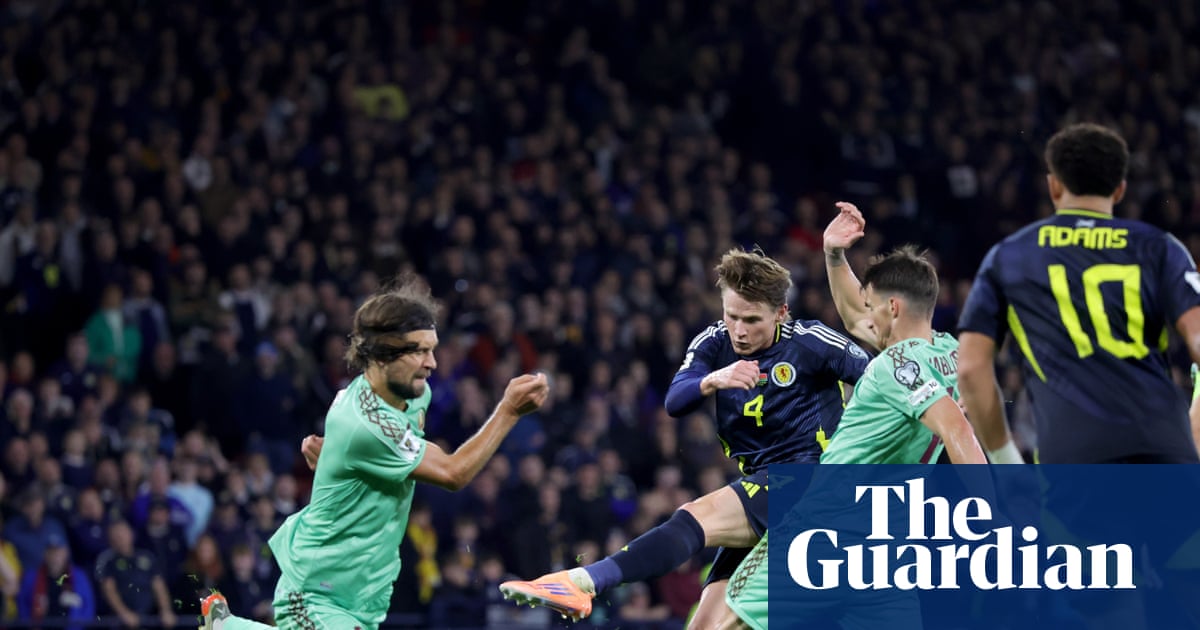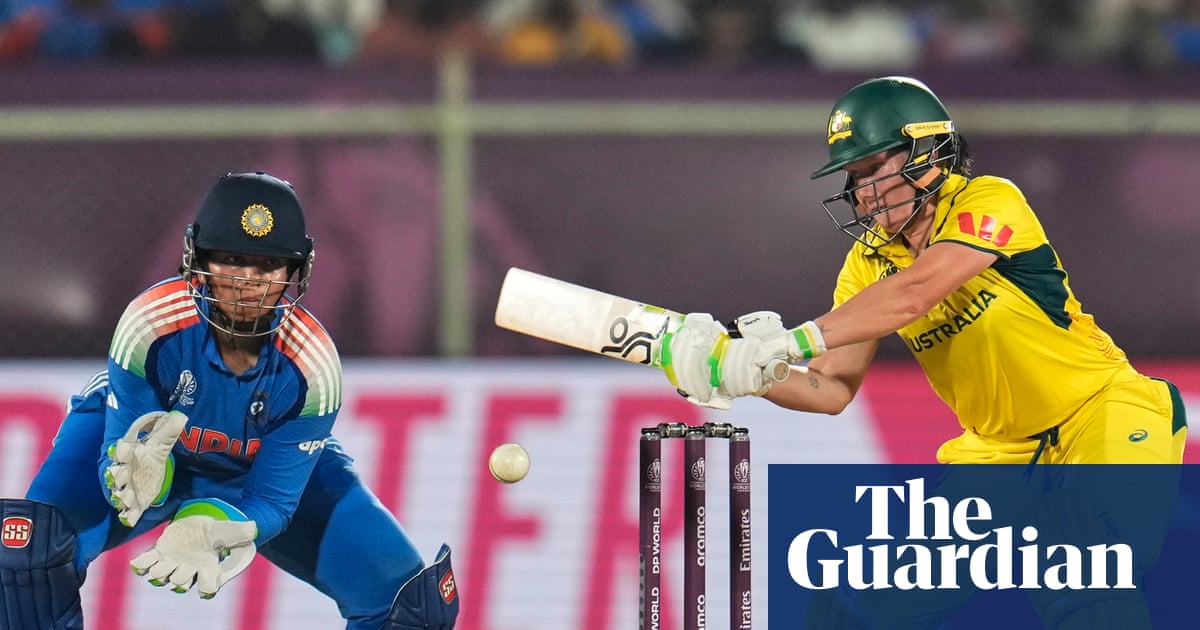Ken Early: Portugal flexed their star power and the referee duly obliged

There’s a particular pattern that keeps recurring throughout the last few years of Cristiano Ronaldo’s career. You’re watching the game thinking, where is he? He’s not doing anything. Look at him. He can hardly run. A 40-year old celebrity passenger on an ego trip. This isn’t Socceraid – has everyone lost their minds? How long can [Ronaldo’s team] allow this charade to continue?Then he suddenly produces a moment like he did in the 17th minute on Saturday night. He gets the ball 25 yards out. You’re thinking: there’s no space to do anything here. He seems to answer your thought by digging out a phenomenal left-footed shot that smacks the base of Caoimhín Kelleher’s post. Okay, not many players could have done that.In the end Ronaldo didn’t score, which is actually not that unusual. This was the 131st time he has played for Portugal without scoring. (He has packed 141 goals into the other 93 international appearances.)But the game suggested that even if Ronaldo never scored another goal for Portugal it would be worth their while keeping him around, just for the effect he has on referees.[ Portuguese media get stuck into Ireland and what else we learned from defeat in LisbonOpens in new window ]He’s one of the most famous people on the planet, he’s the top goalscorer of all time, he’s probably the world’s muscliest billionaire. Is it any wonder he drives so many referees wild, that they seem to dream of the day when they can gather their grandchildren about them and say “Let me tell you again about the night Cristiano Ronaldo smiled at me ...”Ivan Kružliak had refereed 453 official matches before last night, but this was the first time he’d got to perform alongside Ronaldo: a dazzling career landmark for the Slovakian official.Séamus Coleman said after the game that Kružliak was “difficult to communicate with” – though more so for the Irish players than the Portuguese, for whom his door was always open. Coleman initially thought the referee was ignoring him because he wasn’t wearing the captain’s armband, but was then disgusted to see him conversing with Bruno Fernandes, who is not the Portugal captain but is, after all, a famous star for Manchester United.Ireland’s survival plan took the form of a compact 5-4-1, with no space between the midfield and defensive lines. The idea was to channel Portugal wide and then defend the crosses. The only players with license to join Evan Ferguson in attack were Chiedozie Ogbene and Festy Ebosele, who broke forward when Ireland won the ball but most of the time were battling alongside Josh Cullen and Jayson Molumby.Yes it was anti-football, naked and unashamed, but to everything there is a season. Ireland can’t realistically outplay Portugal, but they proved they could at least make them anxious.Portugal have enormous attacking quality but they also have a specific failure mode, which is playing a thousand harmless passes in front of the defence and creating no clear chances. They lapsed into that pattern at the Euros last year when they failed to score a goal in 240 knock-out minutes against Slovakia and France, and at the 2022 World Cup when Morocco played on the break to beat them 1-0.[ Talking Point: Ireland’s strengths and limitations were all on show in LisbonOpens in new window ]Ireland’s game plan was designed to play on that dormant Portuguese neurosis, and the performance of Vitinha was evidence of their success. The orchestrator of PSG’s Champions League-winning side spent the night flitting ineffectively outside the Irish shell like a bee buzzing against a windowpane. He was substituted after an hour.Once they had avoided the traditional early defensive shambles, Ireland actually started to look like they were enjoying themselves. There was an obvious relish about the way Jake O’Brien shouldered Bernardo Silva aside as he shepherded a ball out of play for a goal kick. Nathan Collins’s block on Bernardo in first-half injury time was Cannavaro-like.Moments like this are important for a team trying to rebuild its self-esteem. As Coleman told Newstalk afterwards: “I do think it is important, as a group, as a nation, that we never lose sight of being proud of what we are. There might be a lot of people calling for us to be like Barcelona, or whatever the case may be, but we should be proud of what we are sometimes as well, and use that, and tonight you could see that.”The trade-off for such tenacious in-depth defending was that Ireland had very little left over to commit to attack. Ferguson spent the night being outjumped for long balls. Ogbene waited too long to pass to O’Brien in the best counterattack situation of the first half. The most promising break of the second half was snuffed out by referee Kružliak, who personally intercepted Ebosele’s attempted crossfield pass.Ideally those sporadic forays would have been augmented with a couple of set-piece opportunities, but Kružliak’s attitude was: not on my watch. Heimir Hallgrímsson complained to the fourth official after the referee ignored a foul on Ebosele to the right of Portugal’s penalty area. In the second half the official missed an apparent handball by Ruben Dias in a similarly promising position. He would not be leaving out any scraps on which Ireland might feed.In fact it began to feel as though Kružliak saw himself as Portugal’s lawyer, unembarrassed to pursue whatever vexatious litigation his client demanded, as when he booked Ebosele for a fair tackle on Nuno Mendes because Roberto Martinez was throwing a tantrum.On 57 minutes, Ronaldo ran to grab a ball that had gone out for a goal kick, slammed it down in front of Kelleher and sarcastically clapped him as though urging him to get on with the game. A good referee would have told Ronaldo to calm down. Kružliak waited a few minutes, then showed Kelleher the yellow card Ronaldo and the crowd had demanded.On 73 minutes, Dara O’Shea charged down Francesco Trincão’s speculative shot and Kružliak pointed triumphantly to the spot. The subsequent delay told us that the Dutch VAR officials found it at least slightly troubling that the replays showed the ball hitting O’Shea on the chest, but they decided not to rain on Portugal and Kružliak’s parade.Kelleher saved Ronaldo’s penalty brilliantly, making it six saves from 12 non-shoot-out penalties he’s faced in his career. It’s a testament to his gentlemanly nature that he resisted the temptation to celebrate in Kružliak’s face, like John Aldridge taunting Fernando Couto 30 years ago.Martinez had made a triple substitution after the hour mark, though without seeing much improvement from his side, and Hallgrímsson now tried to re-energise his team with changes: Mikey Johnston for the cramping Ebosele, Troy Parrott for Ferguson, Will Smallbone for Ogbene, John Egan for Coleman, who looked annoyed to be coming off.Egan coming in meant O’Brien moving out to right wing back. Egan quickly made an important interception to deny Ronaldo. But in the first minute of injury time, as Trincão whipped a dangerous inswinging cross, the centre back was understandably distracted by the lurking presence behind him of history’s greatest goalscorer, and Ruben Neves arrived in front to head past Kelleher.This was Neves’s 60th cap but his very first international goal, and he did it wearing the old number 21 shirt of his friend Diogo Jota.From Ireland’s perspective nobody was really to blame for this goal, not even Kružliak. Maybe Johnston could have closed down Trincão a little quicker, maybe Kelleher could have come a little earlier to punch, maybe it was a mistake to disturb the central defensive unit that had done so well until that point.But as Hallgrímsson put it, Portugal “connected a perfect pass with a perfect run”, and when that happens there’s not a lot anyone can do. Once again the points had slipped through Ireland’s fingers, but at least this time they held on to their dignity.






